
OR
Education Act to be replaced after 52 years
Published On: August 4, 2023 06:45 PM NPT By: Ruby Rauniyar
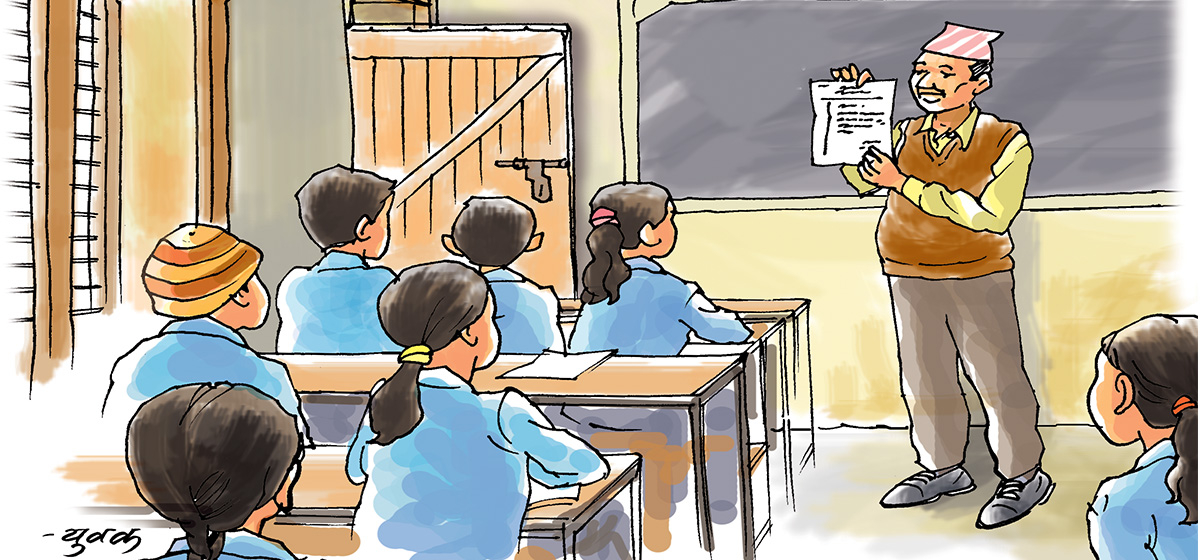
KATHMANDU, August 4: The government has made a significant step in order to replace the Education Act, 1971 (2028 BS) which was issued 52 years ago. A bill has been duly advanced by the government to amend and unify the existing laws related to school education.
Minister for Education, Science and Technology Ashok Kumar Rai officially registered the bill in the Council of Ministers on Tuesday. The approval of the Council of Ministers to submit the bill to the House has paved the way for the proposed legislation to become an Act. As a result, various discussions have started about the bill in the education sector.
The name of the Act proposed in the Bill is 'School Education Act 2079 BS'. According to the Ministry of Education, Science and Technology (MoEST), after the bill is promulgated as an act, the national standards and norms of school education can be determined and equality, uniformity and quality will be maintained in the fundamental aspects of school education. For the same purpose, the MoEST is said to have moved forward to bring a new school education act according to the federal structure.
In the bill prepared for the Public School Education Act, it has been proposed that the teachers employed in schools will be prohibited from becoming a member of any political party from now on. Experts believe that this type of system will help in enhancing the quality of school education. Chapter 8 of the bill prohibits teachers from becoming members of any party, participating in political activities, participating in elections for political positions, and soliciting votes or donations, as outlined in the provisions related to teacher conduct and departmental action. In addition, in the same provision, it is also stipulated that school teachers should not work or serve elsewhere, and should not accept any charity, donations or gifts that may affect the examination process.
The bill also includes provisions that teachers should not participate in protests and demonstrations, strikes, or obstruct, surround, exert pressure, stop teaching, and incite others to do so or engage in any other activities that hinder the students’ right to education.
“With the decision of the Council of Ministers on Tuesday to advance the School Education Bill to replace the Education Act of 2028 BS, the way to start the process of making a new Education Act according to the federal structure has been opened,” said Deepak Sharma, the spokesperson for the MoEST.
According to Spokesperson Sharma, the School Education Act, 2079 BS is necessary to amend and consolidate the existing laws related to school education in order to enhance the quality of school education and manage various aspects related to the establishment and operation of schools. "The bill to amend and unify the laws related to school education has been registered in the Council of Ministers," Spokesman Sharma told Republica, "As the Council of Ministers has approved the bill, it will now proceed to the Ministry of Education for further consideration. After the Minister registers the bill again in the parliament secretariat, it will undergo the parliamentary process of becoming a law,” Sharma added.
The new School Education Act clarifies the rights of federal, provincial and local governments regarding education. It has clarified about the basic and secondary level examinations as well as the appointment of teachers, and provisions for service facilities.
In Chapter 1 of the Bill for Public School Education Act, there are provisions for the establishment and operation of schools. As per this, local authorities will propose the establishment of schools based on the house design of public and private schools in the area and ensure the necessary investment and resources.
The private-investment schools will be established and operated under an educational trust. “However, the bill states that private investment schools established and operating in accordance with the existing laws at the time of commencement of the Act shall not face any hindrance in continuing from operating under the provisions of this Act.'' It further mentions that "the bill allows private schools established in compliance with the prevailing company law before the commencement of the Act to be converted and operated as public or private trusts, and schools established and operating as private trusts can be converted and operated as public educational trusts."
The bill has provisions for secondary education to be general, technical and Sanskrit oriented. It allows flexibility in language medium of education with options including Nepali, Sanskrit, mother tongue or English.
In the same chapter, the bill includes a provision regarding the selection of the principal of the school. According to the provision, a three-member selection committee will be formed, comprising the head of the relevant local level administrative officer or the head of the education branch, and an educationist appointed by the district education office. The committee will operate under the chairmanship of the head of the district education office.
It is mentioned that the School Management Committee will be in accordance with the local laws. Likewise, there are provisions for maintaining the quality of school education, carrying out work related to school’s house design, facilitating the assessment of students’ learning achievement, developing the ability of teachers, coordinating school education, and keeping records of public school assets. The Act has mandated the establishment of a District Education Office in each district to perform the tasks assigned by the Government of Nepal, the Provincial Government, the National Examination Board (NEB) and the National Education Commission.
The Curriculum Development Center will identify the general and technical subjects to be taught at the school level and recommend the national curriculum format, syllabus and teaching materials to be applied in the school.
In Chapter 4, NEB is entrusted with the responsibility of facilitating the technical support to the provincial government and local level authorities in matters related to school level examination policy formulation, conducting, management and issuing certification.
The bill has a provision that the provincial governments will make arrangements to conduct the basic level exams of grade 8 and grade 10 at the local level. Moreover, the bill proposes to abolish the Secondary Education Examination (SEE). The bill mentions that the NEB will be responsible for conducting the final school level examination, which is Grade 12.
In Chapter 5, a provision has been made for the formation of the school teacher service, concerning the appointment and recruitment of teachers. The appointed teachers will be assigned work at two levels: the basic level (from pre-primary to class 8) and the secondary level (from class 9 to 12). At present, the Teachers Service Commission has been advertising three levels of teacher posts namely primary, secondary and higher secondary level. Similarly, after the enactment of this bill, only those teachers under ‘approved position’ will be exclusively employed in public school education.
As per the provisions in the bill, subject-specific advertisements for teacher recruitment will be opened based on the rights of teachers teaching classes 1 to 5 at the basic level and classes 6 to 8 under the category of ‘approved position’. This Act will ensure that the relief, teacher quotas, and special education teacher grant quotas that existed at the time of commencement of this Act will automatically be converted into ‘approved position’. Upon achieving the ‘approved position’, the local level authorities will carry out the recruitment process based on the recommendation of the Commission.
Currently, there are 40,000 teachers under the relief teacher quota, and in classes 11 and 12, there are 2,000 permanent teachers and 4,000 subsidized temporary teachers. If the bill is not amended, advertisements will be issued to appoint 46,000 new teachers. Additionally, the teachers serving under the relief teacher and special education teacher subsidy quota will not be subject to an age limit to participate in the first examination conducted by the Teachers Service Commission (TSC) after the commencement of the Act.
Education Expert Bidya Nath Koirala said that although the government's work to bring in the school education act as per the federal structure after 52 years is positive, the provisions have allowed the existing private schools to focus on profit-making rather than prioritizing education. Koirala further stated that the new provisions favor educational groups, which may pose restrictions on the establishment of new privately funded schools.
"It is clear that a law prohibiting teachers from participating as members of political parties and for positions in elections will reform school education, but on the other hand, it is seems that they are trying to bring a law to please the old private school operators who have invested by letting them earn," said education expert Koirala. "Now that the responsibility for conducting the SEE examination of grade 10 has been given to the provincial government, the NEB should only facilitate it. By giving the right to choose the principal to the District Education Office, the right of the municipality has been sabotaged. After the constitution has given the right to manage school education to the local government, the municipality should have been given the right to choose the principal.”
He said that it was clear that the centralized mentality still prevailed as the new bill states that school education should be kept under all three governments (local, provincial and federal), despite school education being established under the local government in the constitution.
According to Sharma, the spokesperson for the MoEST, the government has prepared to introduce three laws in the education sector to manage the overall education sector. "The School Education Act 2079 BS to manage school education, the Higher Education Umbrella Act to manage higher education and the Technical Education and Vocational Training Council Act to manage technical education are being prepared," Spokesperson Sharma told Republica, "The School Education Bill has been registered in the Council of Ministers, the Higher Education Umbrella Act in the Ministry of Finance. The Technical Education Act has been sent to the Ministry of Law for approval.
You May Like This
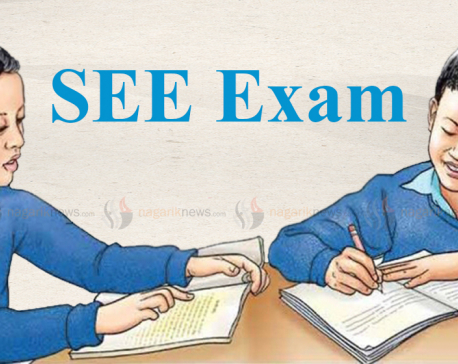
SEE results have deteriorated this year
KATHMANDU, July 28: The results of the Secondary Education Examination (SEE) for the year 2022 have worsened. Due to the... Read More...
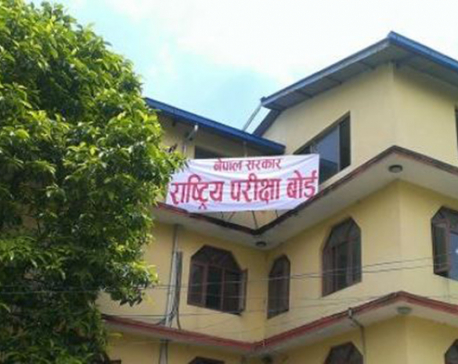
NEB postpones exams of grade 11 and 12 until further notice
KATHMANDU, April 7: National Examination Board has decided to postpone the board examinations of grade 11 and 12. ... Read More...

New Education Act in the pipeline
KATHMANDU, Nov 17: In a bid to replace the existing Education Act, the Ministry of Education, Science and Technology (MoEST)... Read More...







Just In
- Govt urges ISPs to settle outstanding tax liabilities amid internet service disruptions
- Cases of banking fraud up in Nawalparasi
- IGP Kunwar holds meeting with Indonesian National Police Chief Murti
- Nepal faces severe disruptions in internet service after ISPs fail to pay the Indian vendor
- Innovation Fund will be set up for IT sector expansion: PM
- NEPSE loses 7.31 points, daily turnover slides down to Rs 4.13 billion
- President Paudel summons budget session on May 10
- Over 100,000 tourists visit Nepal monthly on average




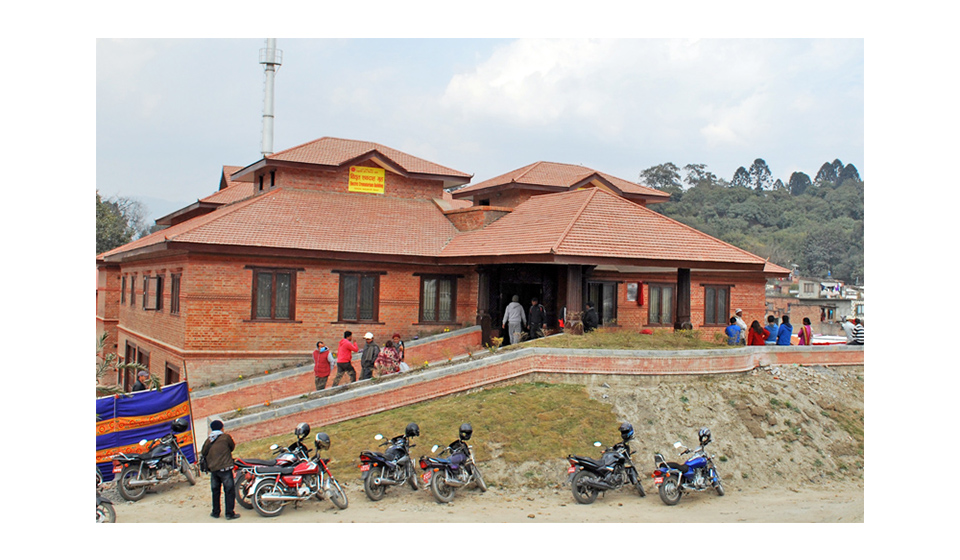

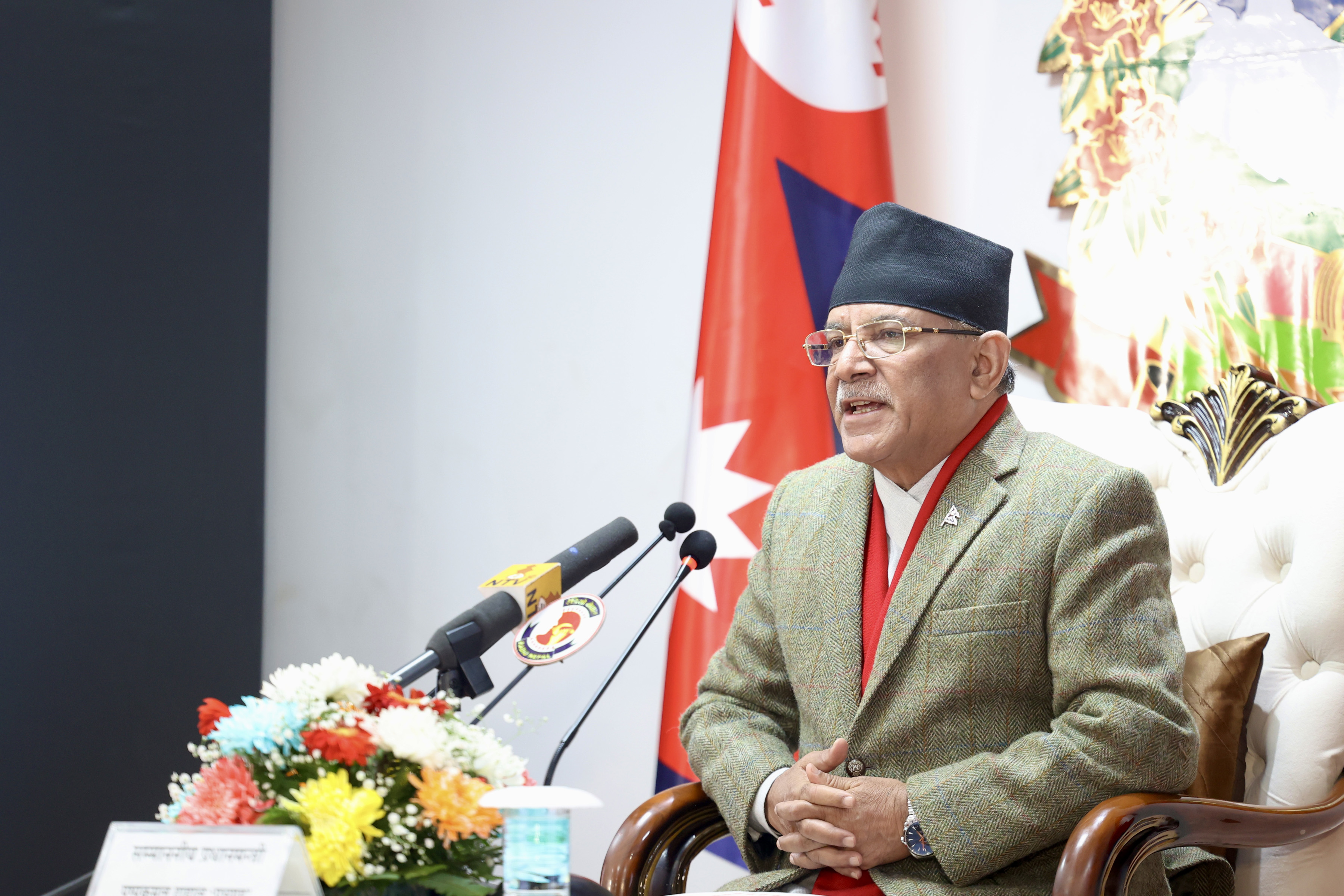


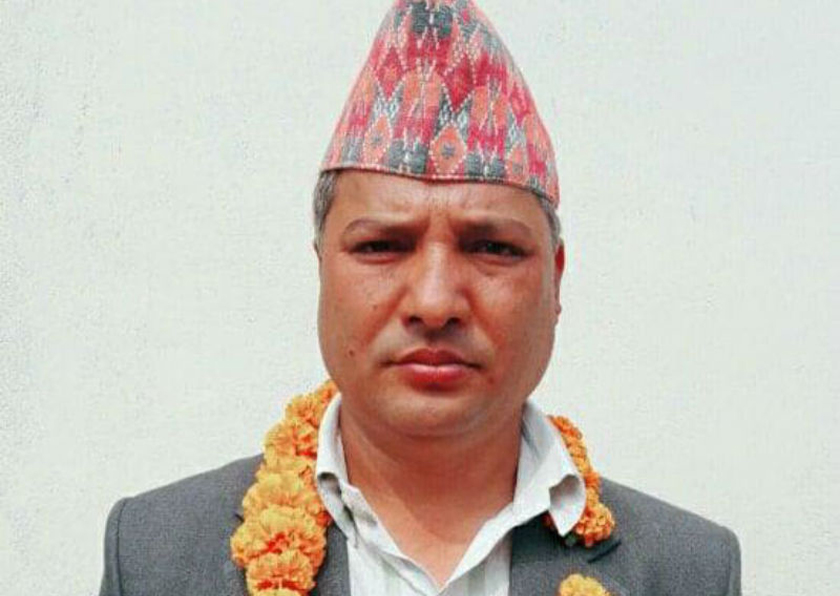


Leave A Comment